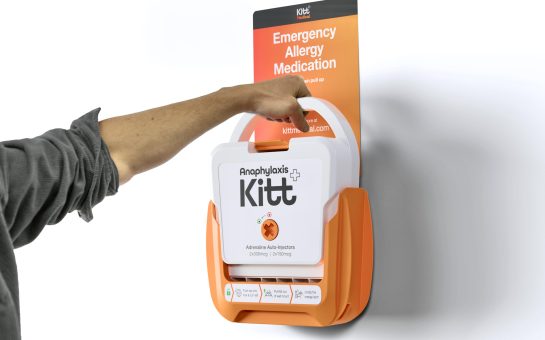![]() By Roxana Shirazi
By Roxana Shirazi
November 9 2019, 11.25
Follow @SW_Londoner
People with epilepsy may be at risk of developing new seizures if their usual medication is altered because of shortages after Brexit according to a professor of neurology.
Serious concern has been felt amongst epilepsy and neurological organisations who say that drug shortages as a result of a no-deal Brexit would risk the health of people with epilepsy.
Professor Ley Sander is the ES Professor of neurology and clinical epilepsy at the department of clinical and experimental epilepsy, at the Institute of Neurology of University College London said: “Epilepsy patients are hoarding their medications because of concerns that there will be shortages as result of Brexit.
“Brexit is not the only problem but drug supplies issues are complex. Distribution of drugs has changed from one that keeps stock around to one which is delivered as and when needed.
“Basic chemicals used to make drugs are sometimes in short supply which leads to shortages of the end product; the drug. But with Brexit, exchange rates between the UK and Europe could affect supplies.”
Epilepsy affects more than 600,000 people in the UK. The neurological disorder which in the dictionary is described as: marked by sudden recurrent episodes of sensory disturbance, loss of consciousness, or convulsions, associated with abnormal electrical activity in the brain.
According to an official government document a ‘no deal Brexit’ has so far caused huge consumer panic across the UK with many fearing food shortages and economic chaos.
Many famous people from Alexander the Great to Julius Caesar to Van Gogh, to movie star Richard Burton and singers Elton John and Prince have had epilepsy, yet still many feel outcast as a result of having epilepsy.
“Unfortunately epilepsy still does have an attached stigma and this often causes more problems to the person than the seizures themselves,” Professor Sander said.
Amy Johnson, a 24-year-old student from Twickenham said: “When a lot of my friends go to the pub or a club I feel I can’t join them as I can’t really drink alcohol because of my epilepsy.
“I do feel left out of a lot of my age group’s socialising, as it all involves alcohol. It can look like I am being boring and anti-social if I don’t get drunk with them. It can be isolating.”
Professor Sander said: “Lack of sleep is the most common trigger, followed by stress and anxiety and then alcohol.
“Epilepsy is being researched in many areas: from basic sciences trying to understand the molecular mechanisms, the genetic markers, new treatment, impact of it on the life of people and so on, and what triggers it. But it is unlikely that we will find a cure.”
Epilepsy charities and neurologists sent letters to Matt Hancock MP, Secretary of State for Health and Social Care, In December 2018 and January this year calling for action to address the likelihood of medicines shortages and expressing concerns about the possible serious shortage.
It remains to be seen how Brexit will affect medications shortages in the UK.
For more information and advice please visit https://www.epilepsy.org.uk/ or call 0808 800 5050 or The Epilepsy Society on 01494 601 400.


